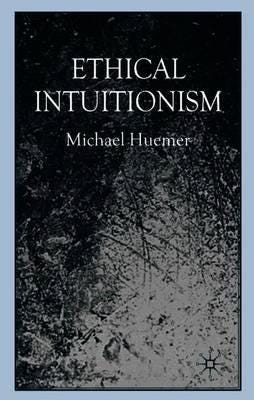Professorial Bias
Sometimes people ask me what it's like to be a libertarian in a far-left-dominated institution. How much bias is there? Do left-wing academics try to exclude libertarians and conservatives?
I was thinking about this partly because I am writing a chapter for a forthcoming volume on philosophers with unorthodox (non-leftist) views in the academy (Dissident Philosophers, ed. with Tully Borland and Alan Hillman).
I'm not sure how much ideological bias there is, because it is hard to detect, and biased people rarely announce what they're doing. But some observations:
The Political Views of Prof's
The academy is definitely left-leaning. The overall numbers are less extreme than you'd think; surveys find large numbers of faculty who identify as "liberal", similarly large numbers of "moderates", and smaller (maybe half as many) who identify as "conservative".
It varies a lot by field, though. Humanities and social sciences are much more leftist than average; engineering, business, and professional schools are much less so. Conservatives who worry about leftward bias are reasonable to do so, because it is the fields where people are most likely to discuss politics in their teaching and research that are most left-dominated. (Who cares if the engineering school has adequate representation of conservatives?)
I think analytic philosophy departments are much better than most of the humanities and social sciences -- particularly in trying to evaluate arguments rationally, instead of just being an ideologue. I can't really speak to Continental philosophy departments, because that is a different culture of which I am not a part.
(Aside: you might have the impression that most philosophy departments in the U.S. are analytic, since analytic philosophy fills the major journals and dominates the prestigious departments. Nonetheless, I would guess that most departments are more Contintental. It's just that these are mainly low-profile departments at teaching schools.)
To be sure, analytic, academic philosophers definitely lean left of center. But insane, dogmatic ideologues are relatively uncommon among them, compared to, say, professors in English or Ethnic Studies.
The left-wing dominance also varies by issue. There are just certain issues that are sacred in the academy -- race, gender, and other "identity politics" issues. Even those who disagree with leftism on other issues had best not question the identity-politics orthodoxy.
Does It Lead to Bias?
It would be kind of amazing if the leftward slant of academic culture didn't lead to some bias in hiring decisions, publication decisions, grant and fellowship awards, and so on. I mean, if there is one thing that we can say people are biased about, it's politics.
(People who are quick to call out any hint of racial and gender bias often seem strangely unconcerned about ideological bias. Those who advocate most forcefully for the importance of exposing students to the differing viewpoints of people with different skin colors, body shapes, and sexual preferences, also often seem oddly uninterested in exposing students to the differing viewpoints of people who actually have different beliefs from the other faculty.)
In one survey, about a third of professors in social psychology admitted that they would discriminate against conservatives in hiring decisions.
(Source: Inbar, Yoel and Joris Lammers. 2012. “Political Diversity in Social and Personality Psychology,” Perspectives on Psychological Science 20: 1-8.)
The actual number who would discriminate is probably larger, since in general, people under-report traits that are considered improper or socially undesirable.
Now, I don't know what the numbers would be for other fields. But I suggest there are probably at least a significant number of people who would discriminate, in left-leaning disciplines in general. To be clear, it's not a majority. I think the majority of people, especially in philosophy, would try to be fair -- and would mostly succeed in doing so.
But here is the problem: philosophy is an incredibly competitive field, as are most academic disciplines. There are commonly hundreds of applicants for a given job. In that context, for a person to succeed, they need every advantage they can get. If being a conservative is a small disadvantage -- if, for example, it causes you to lose one or two votes in a departmental hiring decision -- you can't afford that. Those 1 or 2 votes can easily make the difference between you getting a job, and the next candidate getting it; and that can easily make the difference between your having a job in the profession at all and your having to choose another career. That is how tough the job market is. So there are strong incentives for conservatives, or other dissenters, to suppress their views.
That is to say nothing of the normal, familiar sort of social pressure to conform. Once a group reaches a certain critical mass of people who subscribe to a particular ideology, groupthink takes over, and people start to compete in advancing ever more extreme positions. Those who disagree with the consensus tend to keep their mouths shut.
Needless to say, none of this can be good for an institution engaged in the pursuit of truth.
My Experience
Hidden Bias?
But have I personally experienced bias? I don't really know. When editors make publication decisions, or search committees make hiring decisions, they generally don't announce if their decision was due to political bias.
To take one example, my book, The Problem of Political Authority, was rejected by about a dozen publishers before being taken by Palgrave Macmillan. I am very confident that it was an error for all those publishers to reject it. (Leaving aside whether the book is correct, it has >200 citations on Google scholar since 2013, which is much more than most philosophy books that those publishers accepted.) Did some of them reject it because of its "right-wing" political orientation -- or was it simply ordinary errors of judgment?
There's no way of knowing. No one outwardly expressed a political bias, but decisions like this are so subjective that it is always possible to devise a facially impartial rationale. There's no need for even the biased person himself to know. People just find it easier to see flaws in work whose conclusions they reject than in work whose conclusions they find congenial, and they may not notice anything noteworthy about the situation.
Ethical Intuitionism, by the way, was also rejected by more than a dozen publishers. Which was also a mistake on their part. In that case, it was not due to political bias, though broader philosophical bias can't be ruled out.
Sometimes, it's not even clear what counts as political bias. Suppose certain styles of writing and thinking are more common among libertarians. And suppose a particular referee dislikes those styles. Is that a political bias? Not exactly. But it's not exactly complete impartiality either. But it would be almost impossible to avoid that kind of "bias".
Explicit Bias
That said, I have found the profession surprisingly non-biased in observable ways. No one has discriminated in any obvious way, that I can think of, because of my politics, and that sort of thing certainly could have happened.
Many have in fact openly and rationally discussed political philosophy with me, and when I was a student, professors were happy to help me develop my ideas, including political ones. (Of course, one sees bias all the time in people's assessments of issues, but that's another matter.)
Tales of Two Biases
Ironically, the two times I can recall that I experienced clearly unprofessional treatment because of my philosophical views, it was entirely non-political.
(1) Discrimination in Logic
The first was when, as an undergraduate student, I tried to enroll in a logic course. I had missed the regular enrollment period, and I needed the logic professor's signature on a course add form. I went to the first class session, where I intended simply to listen quietly. In the course of his lecture, the professor posed a question to the class: “Is the empty set a member of every set?” No one answered. He pointed at me and told me to answer. I answered that the empty set does not exist; however, if we suppose that there is such a thing, then I guessed that it would be a member of every set. The professor then explained that the empty set is not a member of every set, but is instead merely a subset of every set.
After class, I followed the prof to his office, where he signed the form to enable me to enroll in his course. I then engaged him in a discussion of whether the empty set exists. He could not understand my view that just the empty set didn’t exist; I had no objection to sets that have actual members. (No doubt I failed to give a clear explanation; here is how I would explain the point today: a set is supposed to be a collection. If there are some objects, then you can talk about the collection of those objects. If, however, you have no objects at all to start with, then there is no collection to speak of either. Hence, there cannot be a set with no members.)
At the time, I had a very direct, matter-of-fact way of stating points (as opposed to the present day, when I convey tentative assessments using all manner of subtle, indirect speech, as the reader will doubtless notice in this blog). So I would say, “By the way, the empty set doesn’t exist,” in the same tone in which you would say, “By the way, it’s raining outside, so take an umbrella.” The professor could not convince me otherwise (mostly because he did not understand my view and he had no arguments for his own). At the end of the conversation, he took back the course add form and crossed out his signature, claiming that I was “not open to learning from” him.
This rather shocked me, as, until that point, I thought that we were just having an interesting intellectual discussion, which, I had assumed, surely a philosophy professor would welcome. He was not interested in any further discussion of the empty set issue either. (I should be inclined to say that it was he who was not open to learning.) So I had to take logic from another professor in a later semester.
(2) Discrimination in Metaphysics
The second time that I outraged a professor with my philosophical views was during a graduate seminar in metaphysics. The seminar centered on the professor's own in-progress book manuscript in which he expounded his view that human beings are not smart enough to solve (some wide range of) philosophical problems. Each week, we would sit for three hours, while the prof expounded on how it was theoretically possible for his view to be true (after all, there are certainly problems that dogs can’t solve; so why couldn’t there be ones that we can’t solve?, etc.). I periodically tried to get him to say something nontrivial, but he never would.
One week, we were discussing his chapter on the problem of free will, in which he said (at great length) that human beings are not smart enough to grasp how freedom is compatible with determinism. Thinking that I might finally get him to make an interesting, substantive argument, I pointed out to this professor that there were actually arguments in the philosophical literature that claim to show that free will is not compatible with determinism. So, before claiming that we aren’t smart enough to see how the two are compatible, it would behoove him to start by giving an argument to show that they are in fact compatible. The professor replied, “I have given arguments. They were this whole chapter.” (For the record, there were no such arguments in the chapter manuscript, which in fact did not evince any awareness of the literature on incompatibilism.) I replied, “It seems like the only argument is that you want to believe in free will, and you want to also accept determinism.” Then came the professor's devastating retort: “That’s the stupidest thing I’ve heard you say. And that’s saying something.”
The class fell silent. In the awkward silence, he proposed that we take a ten-minute break. I never returned to the class, and never spoke to that professor again.
So those are my stories of "ideological discrimination", so to speak. If they had been about political issues, you would probably see them as evidence of the oppression sponsored by the American left. But in fact, they were just examples of two individuals being assholes.







